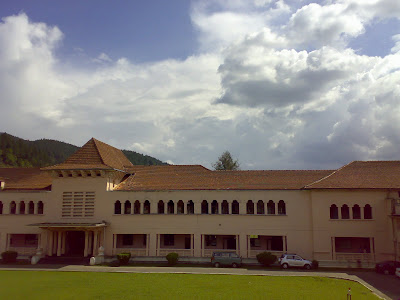Faculty of Science
Tuesday, December 15, 2009
The University of Peradeniya is the legacy of the University of Ceylon first established in Sri Lanka in 1942. The Faculty of Science, comprising the Departments of Botany, Chemistry, Mathematics, Physics and Zoology were initially located in Colombo along with other Faculties of the University of Ceylon. It had been decided to have the permanent home of the University in Peradeniya and accordingly, the Faculty of Arts, Oriental Studies, Law, Agriculture, Veterinary and Dental Sciences were established at Peradeniya by the early part of the 1951-60 decade.
Departments
* Department of Botany
* Department of Chemistry
* Department of Geology
* Department of Mathematics
* Department of Molecular Biology and Bio-technology
* Department of Physics
* Department of Statistics and Computer Science
* Department of Zoology

.JPG)

+copy.jpg)
.JPG)
.JPG)
.JPG)
.JPG)


























